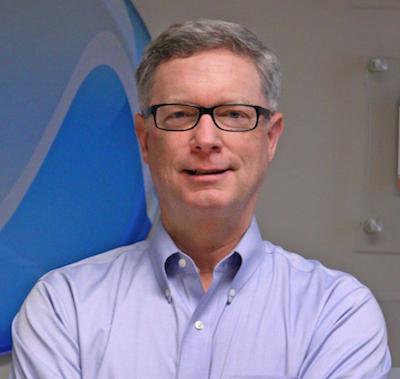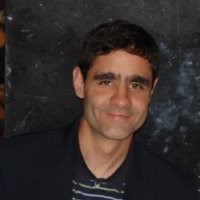 Boston Physician Atul Gawande wrote The Checklist Manifesto in 2009 stressing that medicine should adopt “pilot’s checklists” to ensure that operating room teams are “ready for takeoff” before a scapel is ever opened. BIDMC implemented The Checklist Manifesto ideas in software in 2010. Here’s the “Time Out” done among all OR team members before a case beings - it includes a list of staff participating in the timeout, the agreed upon procedure, the verification of consent, appropriately marked operative site, patient identity verification, and best practices for prophylaxis...
Boston Physician Atul Gawande wrote The Checklist Manifesto in 2009 stressing that medicine should adopt “pilot’s checklists” to ensure that operating room teams are “ready for takeoff” before a scapel is ever opened. BIDMC implemented The Checklist Manifesto ideas in software in 2010. Here’s the “Time Out” done among all OR team members before a case beings - it includes a list of staff participating in the timeout, the agreed upon procedure, the verification of consent, appropriately marked operative site, patient identity verification, and best practices for prophylaxis...
Atul Gawande
See the following -
A Marriage Of Data And Caregivers Gives Dr. Atul Gawande Hope For Health Care
Dr. Atul Gawande (@Atul_Gawande) has been a bard in the health care world, straddling medicine, academia and the humanities as a practicing surgeon, medical school professor, best-selling author and staff writer at the New Yorker magazine. His long-form narratives and books have helped illuminate complex systems and wicked problems to a broad audience. Read More »
- Login to post comments
An EHR Implementation of The Checklist Manifesto
- Login to post comments
Creating EHRs that Doctors Don't Hate
 It may be difficult to recall now, what with the ongoing Cerner deployment and recent challenges that had little to do with technology, but there was a time when the Department of Veterans Affairs was considered the gold standard for healthcare IT. VA was out front with the initial development in the 1970s of the VistA system, which would come to be widely recognized and frequently honored. Indeed, when VA was overhauled in the 1990s, VistA was the primary tool that enabled the success of new policies. Without question, much of the effectiveness and durability of VA's VistA can be attributed to the way it was developed, specifically to the collaboration between technologists and clinicians that defined the process.
It may be difficult to recall now, what with the ongoing Cerner deployment and recent challenges that had little to do with technology, but there was a time when the Department of Veterans Affairs was considered the gold standard for healthcare IT. VA was out front with the initial development in the 1970s of the VistA system, which would come to be widely recognized and frequently honored. Indeed, when VA was overhauled in the 1990s, VistA was the primary tool that enabled the success of new policies. Without question, much of the effectiveness and durability of VA's VistA can be attributed to the way it was developed, specifically to the collaboration between technologists and clinicians that defined the process.
- Login to post comments
Do We Really Need More Doctors? How About Trying to Have Healthier Folks?
 Health care needs a better business model. HHS reports that U.S. health care spending will surpass $10,000 per person this year, will grow almost 6% annually for the foreseeable future, and will consume over 20% of GDP by 2025. About half of our spending goes for labor costs, with health care employment remaining one of the "bright spots" in our economy. Indeed, health care jobs continued to soar even when the economy tanked in our most recent recession. Despite that steady growth, we continue to talk about a physician shortage, especially for primary care. Medical school enrollment is at new highs, yet it is not projected to dent the demand...
Health care needs a better business model. HHS reports that U.S. health care spending will surpass $10,000 per person this year, will grow almost 6% annually for the foreseeable future, and will consume over 20% of GDP by 2025. About half of our spending goes for labor costs, with health care employment remaining one of the "bright spots" in our economy. Indeed, health care jobs continued to soar even when the economy tanked in our most recent recession. Despite that steady growth, we continue to talk about a physician shortage, especially for primary care. Medical school enrollment is at new highs, yet it is not projected to dent the demand...
- Login to post comments
Doctors Tell All—And It’s Bad
A crop of books by disillusioned physicians reveals a corrosive doctor-patient relationship at the heart of our health-care crisis...
- Login to post comments
Evolving Patient Rights In The Research And Delivery Of Health Care
...As the idea reached the proscenium this month at the Health Datapalooza, a conference founded by the US Department of Health and Human Services and now attracting more than 2,000 people, patient empowerment marks its entry into the mainstream...
- Login to post comments
Health Care Leaders Gather To Address Challenges, Opportunities Of Open Health Data At Health Datapalooza 2014
The Health Data Consortium (HDC),a non-profit advocacy and membership organization dedicated to mobilizing health data to transform the U.S. health care system, announced keynote speakers for Health Datapalooza 2014, being held at the Marriott Wardman Park on June 1-3 in Washington, D.C...
- Login to post comments
How A Flaw In The ACO Model Leaves Patients Out
While federal legislation focuses on payor / provider synergies, there is nothing in the mandated programs beyond pilot projects or experiments according to the legislative texts. Read More »
- Login to post comments
Improving Quality Patient Outcomes A Money Loser For Hospitals
Surgical patients who have complications generate better margins for hospitals, a new study in the Journal of American Medical Association has found. Cue the outrage from the consumer media about “profit-hungry hospitals.” Read More »
- Login to post comments
Just Doing Our Jobs
 Health care fraud is bad. Everyone agrees about that (except those who profit by it). We'd similarly agree it is all too pervasive. Just in the past few days racketeering charges have been brought against former executives of Insys Theraputics, numerous charges brought against leaders of Forest Park Medical Center (Dallas), 18 people in Pittsburgh were charged in a prescription fraud scheme, a New Jersey chiropractor was arrested for health fraud, and the feds settled a $4.5 million fraud case against a Florida orthopedic clinic. The list goes on and on, week after week, in every state, for every type of medical specialty, and against most health insurers. Some estimate that fraud could account for up to 10% of health care spending. But that's chump change: estimates are that other kinds of wasteful spending, such as unnecessary care and excessive administrative costs, are easily double that...
Health care fraud is bad. Everyone agrees about that (except those who profit by it). We'd similarly agree it is all too pervasive. Just in the past few days racketeering charges have been brought against former executives of Insys Theraputics, numerous charges brought against leaders of Forest Park Medical Center (Dallas), 18 people in Pittsburgh were charged in a prescription fraud scheme, a New Jersey chiropractor was arrested for health fraud, and the feds settled a $4.5 million fraud case against a Florida orthopedic clinic. The list goes on and on, week after week, in every state, for every type of medical specialty, and against most health insurers. Some estimate that fraud could account for up to 10% of health care spending. But that's chump change: estimates are that other kinds of wasteful spending, such as unnecessary care and excessive administrative costs, are easily double that...
- Login to post comments
Mortal Coils: Why We Must Stop Tolerating Failing Health Tech
 Today, data are scattered across thousands of database tables within any single electronic medical record (EMR) system, but also across dozens of other systems that hold pharmacy data, imaging data, insurance data, laboratory data, etc. Pretty much none of it is available on demand in any given clinical setting. The inevitable result of this disconnected galaxy of data "black holes" is mistakes, or if not outright mistakes, well-intentioned missteps based on lack of background data within the acute-care setting.
Today, data are scattered across thousands of database tables within any single electronic medical record (EMR) system, but also across dozens of other systems that hold pharmacy data, imaging data, insurance data, laboratory data, etc. Pretty much none of it is available on demand in any given clinical setting. The inevitable result of this disconnected galaxy of data "black holes" is mistakes, or if not outright mistakes, well-intentioned missteps based on lack of background data within the acute-care setting.
- Login to post comments
The Business of Healthcare Is Business
 Hmm, that headline doesn't seem right, does it? I mean, shouldn't the business of healthcare be, well, health? Or, at least, caring? Actually, shouldn't the business of healthcare be patients? After all, everyone in healthcare says it's all about patients. Everyone says they're patient-centered, whatever that means. But think about this: who in healthcare gets paid for you to be healthy? Or, conversely, who in healthcare doesn't get paid when you get sick, or when you don't improve under their care? Whether we planned it or not, whether we admit it or not, or whether we like it or not, our healthcare system is a business that has become about making money.
Hmm, that headline doesn't seem right, does it? I mean, shouldn't the business of healthcare be, well, health? Or, at least, caring? Actually, shouldn't the business of healthcare be patients? After all, everyone in healthcare says it's all about patients. Everyone says they're patient-centered, whatever that means. But think about this: who in healthcare gets paid for you to be healthy? Or, conversely, who in healthcare doesn't get paid when you get sick, or when you don't improve under their care? Whether we planned it or not, whether we admit it or not, or whether we like it or not, our healthcare system is a business that has become about making money.
- Login to post comments
Health Datapalooza 2014
More than 2,000 experts convene in nation’s capital; demand access, use of health data to propel innovation
The Health Data Consortium (HDC),a non-profit advocacy and membership organization dedicated to mobilizing health data to transform the U.S. health care system, announced keynote speakers for Health Datapalooza 2014, being held at the Marriott Wardman Park on June 1-3 in Washington, D.C.
Speakers include:
- Steven Brill, CEO and co-founder, Journalism Online LLC and author of TIME Magazine’s controversial cover feature “Bitter Pill”
- Jonathan Bush, CEO and co-founder, athenahealth
- Francis Collins, Director, National Institutes of Health
- Elliott Fisher, Director, The Dartmouth Institute for Health Policy and Clinical Practice
- Atul Gawande, Professor of Surgery, Harvard Medical School and New Yorker contributor...
- Login to post comments